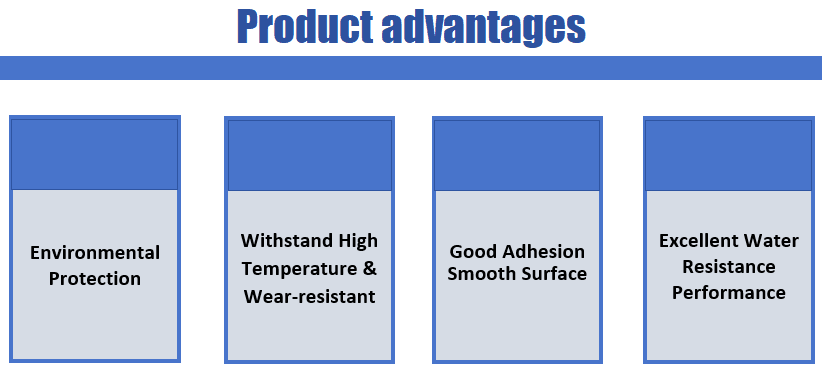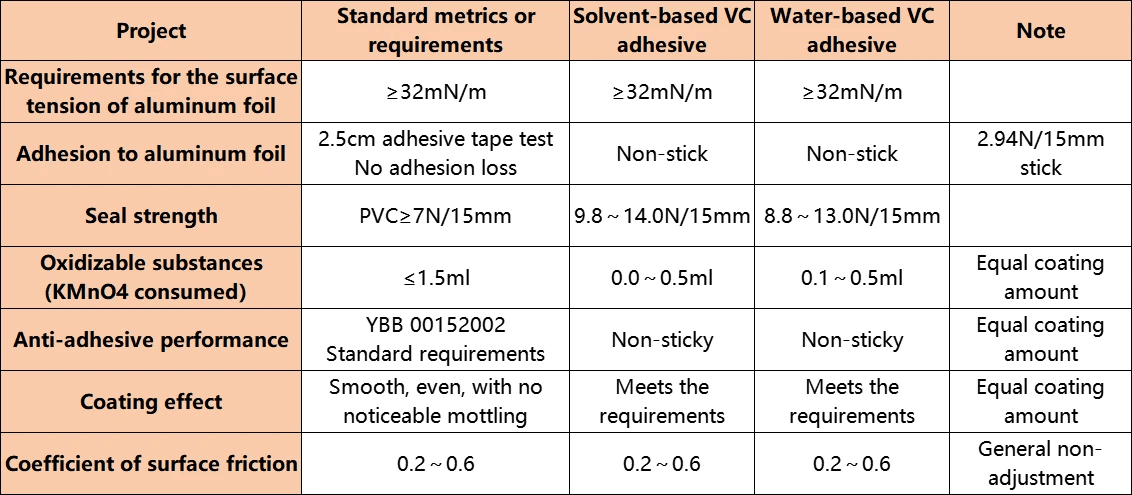Introduction

Finding the Right Adhesive
Choosing the best glue for aluminum to plastic requires careful consideration of various adhesive types and their properties. Some adhesives excel at providing strong bonds while others may offer flexibility or resistance to environmental factors. Additionally, it's important to address common queries like, Does Gorilla Glue work on plastic and aluminum? since knowing which products are compatible can save time and frustration.
Essential Factors for Bonding
Several essential factors influence how well an adhesive performs when bonding aluminum to plastic, including surface preparation, curing time, and environmental conditions. For instance, certain adhesives may require roughening surfaces or using primers for optimal adhesion. Understanding these elements will help answer questions like What is the strongest glue for aluminum? and guide you toward making informed decisions.
Common Applications and Uses
The applications of gluing aluminum to plastic are vast—ranging from DIY projects at home to industrial manufacturing processes. Whether you're fixing a broken item or creating something entirely new, knowing how to super glue plastic to metal can open up endless possibilities in crafting and repairs. Ultimately, selecting the right adhesive not only enhances your project's durability but also boosts your confidence in tackling future challenges.
Understanding Glue Options

What is the best glue for aluminum to plastic?
The quest for the best glue for aluminum to plastic often leads users toward adhesives specifically formulated for challenging materials. Epoxy adhesives are frequently recommended due to their exceptional bonding strength and versatility, making them a top contender in this category. Additionally, cyanoacrylate glues (commonly known as super glue) can also work effectively, especially when used with proper surface preparation.
If you're pondering What is the best glue for aluminium to plastic?, remember that the choice might depend on your project requirements, including environmental factors and load-bearing needs. For example, Gorilla Glue is another popular option that many people ask about: Does Gorilla Glue work on plastic and aluminum? While it does offer a strong bond, its foaming nature can lead to some messiness if not applied carefully.
Ultimately, understanding your specific application will guide you in choosing the most suitable adhesive. Whether it’s heavy-duty use or light repairs, knowing what works best can save you time and frustration down the line.
Overview of Available Adhesives
In addition to epoxy and super glue, there are several other adhesives worth considering when bonding aluminum and plastic together. Polyurethane-based glues like Gorilla Glue provide impressive adhesion but require moisture activation during curing—an important factor if you're working in dry conditions. Other options include specialty adhesives designed specifically for plastics or metals; these can be particularly effective but may come at a higher price point.
For those who prefer eco-friendly solutions, water-based adhesives such as Chemix's resin solution have emerged as viable alternatives that still deliver solid performance without harmful chemicals. These products cater not only to environmental concerns but also offer customization features tailored to various projects.
Each type of adhesive has its unique strengths; thus evaluating their characteristics will help you make an informed decision based on your project's demands.
Pros and Cons of Each Type
When considering which adhesive might be right for you, it's essential to weigh the pros and cons of each option available in the market today. Epoxy adhesives are lauded for their strength; however, they often require longer curing times compared to instant glues like super glue—which bonds quickly but may lack durability under extreme conditions.
Gorilla Glue brings versatility into play with its ability to bond dissimilar surfaces effectively; yet its foaming action can create challenges during application if not managed properly. Meanwhile, water-based resins are generally safe and easy-to-use alternatives with customizable properties but may not always achieve the same level of bonding strength as their solvent-based counterparts.
Ultimately, understanding these pros and cons will empower you in selecting not only the best glue for aluminum to plastic but also one that aligns with your project’s specific requirements while keeping potential pitfalls in mind.
Gorilla Glue: Is it Worth It?

Does Gorilla Glue work on plastic and aluminum?
Gorilla Glue is designed to adhere to a wide range of materials, including both plastic and aluminum. Its unique polyurethane formulation expands as it cures, which helps fill gaps and create a strong bond between surfaces. However, it's essential to note that surface preparation plays a crucial role in achieving optimal bonding results when using Gorilla Glue on these materials.
Analysis of Strength and Durability
In terms of strength, many users consider Gorilla Glue one of the strongest options available for bonding aluminum to plastic. Once cured, this adhesive forms a durable bond that can withstand significant stress and environmental conditions. However, while it excels in certain applications, some may argue that other adhesives might offer even stronger bonds specifically tailored for aluminum—like epoxy—which raises the question: What is the strongest glue for aluminum?
When to Use Gorilla Glue
Gorilla Glue is an excellent option when you need flexibility in your projects or are working on items exposed to moisture or varying temperatures. It's particularly useful for crafts or repairs where weight isn't a critical factor but durability is essential. If you're asking yourself how to super glue plastic to metal in situations where speed is crucial, consider having both options at hand—Gorilla Glue for its versatility and super glue for quick fixes.
The Strength of Epoxy

What is the strongest glue for aluminum?
The strongest glue for aluminum typically includes specialized epoxy formulations designed specifically for metal bonding. These epoxies can create a chemical bond that is not only strong but also resistant to moisture and temperature fluctuations. When asking, What is the best glue for aluminum to plastic? many experts would recommend epoxies due to their ability to adhere effectively across different materials.
Benefits of Epoxy Adhesives
Epoxy adhesives offer numerous benefits that make them a top choice in many applications. First and foremost, they provide superior tensile strength compared to other adhesive types, ensuring a long-lasting bond between materials such as aluminum and plastic. Additionally, epoxy is versatile; it can fill gaps and imperfections in surfaces, enhancing adhesion even further—making it an excellent option when considering whether Gorilla Glue works on plastic and aluminum.
Another advantage of epoxy is its resistance to chemicals and environmental factors, which means your bond will remain strong under various conditions. This makes it suitable not just for household projects but also industrial applications where durability is paramount. If you're pondering how super glue performs against these heavyweights, it's worth noting that while super glue offers quick fixes, it often lacks the long-term resilience provided by epoxy.
Application Techniques for Best Results
To achieve optimal results with epoxy adhesives, proper application techniques are crucial. Begin by ensuring both surfaces are clean and free from grease or dirt—this step cannot be overstated! For maximum bonding power when using the best glue for aluminum to plastic options like epoxy or Gorilla Glue, roughening up the surfaces slightly can enhance adhesion significantly.
Once prepared, mix your epoxy according to manufacturer instructions—this usually involves combining resin with hardener in equal parts before applying it generously onto one surface. If you're wondering how to super glue plastic to metal effectively instead of using an epoxy solution, remember that precise application matters here too; avoid excess which could lead to messy results or weak bonds! Finally, clamp or hold the pieces together until cured completely; this ensures they stay aligned during drying time.
Chemix's Water-Based Resin Solution

Chemix's water-based resin solution is making waves in the adhesive world, particularly for those searching for the best glue for aluminum to plastic. This eco-friendly option provides a safe alternative to traditional adhesives that often contain harsh chemicals. With a focus on sustainability, Chemix offers a product that not only bonds effectively but also aligns with environmentally conscious practices.
Eco-Friendly and Safe for Use
One of the standout features of Chemix's water-based resin is its eco-friendliness. Unlike many adhesives that emit harmful fumes or require hazardous solvents, this resin is made from safer components, making it ideal for indoor projects or applications involving children and pets. Plus, it doesn’t compromise on performance—providing strong bonds without the environmental guilt.
When considering what is the best glue for aluminum to plastic, safety becomes a priority alongside effectiveness. Chemix’s formula ensures that users can work confidently without worrying about toxic exposure or long-term health effects. It’s a win-win scenario: you get reliable adhesion while being kind to Mother Earth.
Performance Compared to Traditional Glues
When comparing Chemix’s water-based resin to traditional glues, performance holds strong as another key factor in determining what is the strongest glue for aluminum. Many users have reported impressive bonding results that rival those of more conventional options like epoxy or polyurethane adhesives. The unique formulation allows it to adhere well even under varying temperature and humidity conditions.
In practical applications, this means you can trust Chemix's product in diverse environments—from your cozy workshop to outdoor projects that face the elements. If you're asking yourself if Gorilla Glue works on plastic and aluminum, consider trying Chemix as an alternative; it might just surprise you with its versatility and strength!
Customization and Versatility
Customization is where Chemix truly shines when discussing how to super glue plastic to metal or any other combination of materials. The water-based resin can be adjusted in terms of viscosity—allowing users to create thicker applications for gap-filling or thinner solutions for fine detail work. This flexibility makes it suitable not just for aluminum and plastic but also various substrates like wood and ceramics.
Moreover, whether you're tackling DIY crafts or complex repair jobs, this adhesive adapts seamlessly to meet your needs without sacrificing quality. It’s refreshing in an industry often dominated by one-size-fits-all solutions! So next time you're pondering which adhesive might be right for your project involving metal and plastic combinations, remember that there are options beyond traditional super glues.
Super Glue for Metal and Plastic

When it comes to bonding plastic to metal, super glue can be a game changer. This powerful adhesive, also known as cyanoacrylate, creates a strong bond that often withstands various environmental conditions. However, understanding how to effectively use super glue is essential for achieving the best results.
How to super glue plastic to metal?
To successfully super glue plastic to metal, start by ensuring both surfaces are clean and dry. Use rubbing alcohol or soap and water to remove any dirt or grease; this step is crucial because even the tiniest residue can weaken the bond. Once cleaned, apply a small amount of super glue directly onto one surface—less is more here! Press the two materials together firmly for about 30 seconds to one minute, allowing the adhesive time to set.
Tips for Effective Bonding
For effective bonding between plastic and metal using super glue, consider these handy tips: First, always work in a well-ventilated area; fumes from super glue can be quite potent. Second, use clamps or tape if possible to hold the materials in place while they cure—this helps achieve an even stronger bond. Lastly, remember that while super glue works wonders on many types of plastics and metals, it's not universal; always check compatibility before diving into your project.
Limitations and Considerations
Despite its impressive capabilities, there are limitations when using super glue for aluminum and plastic projects. For instance, it may not be suitable for high-stress applications where flexibility is required since it dries rigidly. Additionally, exposure to moisture can weaken its bond over time—so if you're wondering what is the strongest glue for aluminum under wet conditions? Super glue might not make the cut! Always consider these factors when deciding on your adhesive choice.
Conclusion
In the world of adhesives, knowing the right choice can save you time, money, and a whole lot of frustration. When considering the best glue for aluminum to plastic, it’s crucial to evaluate your specific project needs and materials involved. Each adhesive type has its strengths and weaknesses, making it essential to weigh your options carefully before diving in.
Best Choices for Specific Projects
For projects requiring a strong bond between aluminum and plastic, epoxy adhesives often emerge as the strongest contenders. If you're asking yourself, What is the best glue for aluminium to plastic?, consider epoxy or specialized hybrid adhesives designed for such applications. However, if you’re looking for quick fixes, super glue might be your go-to option; just remember it has limitations when bonding these materials.
When considering whether Does Gorilla Glue work on plastic and aluminum?, it's important to note that while it can create a solid bond, its expansion properties may not be ideal for all projects. For those who prioritize eco-friendliness alongside performance, Chemix's water-based resin solution offers an excellent alternative without compromising on strength or versatility. Ultimately, choosing the right adhesive boils down to understanding your project's requirements and selecting accordingly.
Safety Considerations When Using Adhesives
Adhesives can be powerful tools in any DIY arsenal but come with their own set of safety considerations that shouldn't be overlooked. Always work in well-ventilated areas when using strong adhesives—especially those containing solvents—to avoid inhaling potentially harmful fumes. Additionally, wearing gloves is advisable to protect your skin from irritants; after all, nobody wants sticky fingers!
It's also important to read labels carefully regarding safety instructions and potential hazards associated with each adhesive type you consider using. If you're ever unsure about how to super glue plastic to metal effectively without creating a mess or health risk, consult product guidelines or seek expert advice before proceeding with your project. Remember: safety first leads to successful bonding second!
Final Tips for Successful Bonding
To achieve optimal results with any adhesive application—whether you're working with aluminum or plastic—preparation is key! Ensure surfaces are clean and dry before applying any glue; dirt or moisture can weaken bonds significantly over time. Additionally, follow recommended curing times closely; patience pays off when waiting for adhesives like epoxy or Gorilla Glue to fully set.
Don’t forget about testing small areas first if you're uncertain about how different materials interact with each other! And always keep in mind that some products will perform better than others depending on specific conditions like temperature and humidity levels during application—so choose wisely! With these tips in hand and a clear understanding of which products are best suited for your needs (like figuring out what is the strongest glue for aluminum), you'll be well on your way to becoming an adhesive aficionado.
